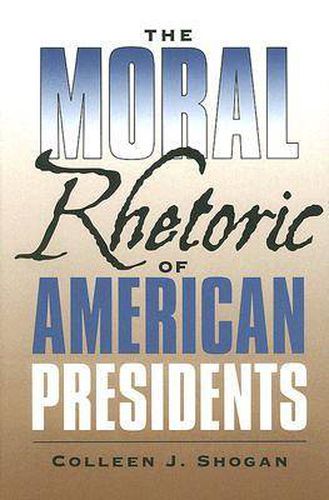Readings Newsletter
Become a Readings Member to make your shopping experience even easier.
Sign in or sign up for free!
You’re not far away from qualifying for FREE standard shipping within Australia
You’ve qualified for FREE standard shipping within Australia
The cart is loading…






Although sometimes decried by pundits, George W. Bush’s use of moral and religious rhetoric is far from unique in the American presidency.
The Moral Rhetoric of American Presidents
astutely analyzes the president’s role as the nation’s moral spokesman. Drawing on quantitative and qualitative methods, Colleen J. Shogan demonstrates that moral and religious rhetoric is a strategic tool presidents can use to enhance their constitutional authority. To determine how the use of moral rhetoric has changed over time, Shogan employs content analysis of the inaugural and annual addresses of all the presidents from George Washington through George W. Bush. This quantitative evidence shows that while presidents of both parties have used moral and religious arguments, the frequency has fluctuated considerably and the language has become increasingly detached from relevant policy arguments. Shogan explores the political effects of the rhetorical choices presidents make through nine historical cases: Presidents Washington, Jefferson, Madison, Buchanan, Lincoln, Theodore Roosevelt, Kennedy, Lyndon Johnson, and Carter. Shogan highlights the specific political circumstances that encourage or discourage the use of moral rhetoric. Shogan concludes with an analysis of several dilemmas of governance instigated by George W. Bush’s persistent devotion to moral and religious argumentation.
$9.00 standard shipping within Australia
FREE standard shipping within Australia for orders over $100.00
Express & International shipping calculated at checkout
Although sometimes decried by pundits, George W. Bush’s use of moral and religious rhetoric is far from unique in the American presidency.
The Moral Rhetoric of American Presidents
astutely analyzes the president’s role as the nation’s moral spokesman. Drawing on quantitative and qualitative methods, Colleen J. Shogan demonstrates that moral and religious rhetoric is a strategic tool presidents can use to enhance their constitutional authority. To determine how the use of moral rhetoric has changed over time, Shogan employs content analysis of the inaugural and annual addresses of all the presidents from George Washington through George W. Bush. This quantitative evidence shows that while presidents of both parties have used moral and religious arguments, the frequency has fluctuated considerably and the language has become increasingly detached from relevant policy arguments. Shogan explores the political effects of the rhetorical choices presidents make through nine historical cases: Presidents Washington, Jefferson, Madison, Buchanan, Lincoln, Theodore Roosevelt, Kennedy, Lyndon Johnson, and Carter. Shogan highlights the specific political circumstances that encourage or discourage the use of moral rhetoric. Shogan concludes with an analysis of several dilemmas of governance instigated by George W. Bush’s persistent devotion to moral and religious argumentation.